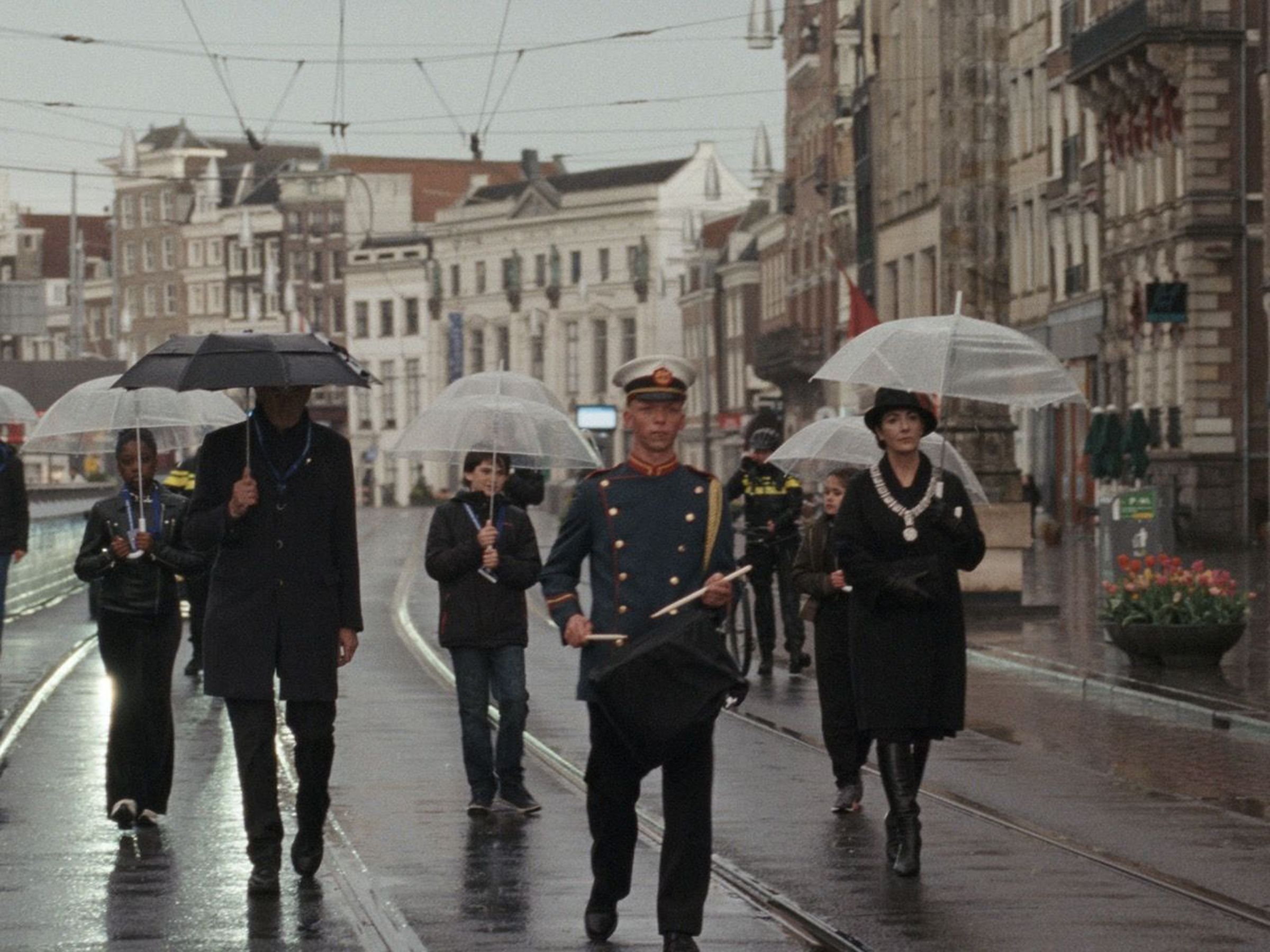When I heard about the fire in Grenfell Tower in London in 2017, I needed to do something. I was in pain like many other people to witness a tragedy that did not have to happen. A tragedy due to deliberate neglect. The question for me at the time was: How do I engage with this tragedy? The only thing I could think of was to visit the building. I knew once they started to cover up the tower after the fire it would start to leave people’s minds. I was determined that it would never be forgotten. So, my decision was made for me. Film the building. Remember.
My film Grenfell was shown for the first time this year in the Serpentine Gallery in London. Five years after I shot it.
With the film Occupied City, which will be released this month, I wanted to illuminate a less recent history, but one which I engaged with in my everyday life. Occupied City is an attempt to show the occupation of Amsterdam by Nazi Germany during the Second World War. Living in Amsterdam for 28 years, I found the past never really goes away. It is always present, with every footstep. What I tried to do was sprinkle flour on the city to make this visible.
The medium of film has always been fascinating to me, that you could point a lens at something and record it for eternity. But what if there are no images or hardly any images to pull from? How do we remember, and how do we hold on to things in history that are important? How do we not forget, and how do we learn from tragedy? In Occupied City, I used texts about Amsterdam during the occupation to accompany images of Amsterdam shot in the last three years. You see the present, but you hear the past, as if it’s whispering in the wind.
Read More: 10 Questions for Steve McQueen
When I visited the White House for the student film festival in 2015, I wandered around Washington and stumbled on the location where Solomon Northup was held in a slave pen and discovered the building from which he was kidnapped. These invisible histories are always present, and as an artist and filmmaker it has been part of my task to bring them to the fore. History is only a scratch beneath the surface, the evidence of which is everywhere to see, be it colonialism, slavery, the Holocaust.
It has been important for me to unearth these histories to understand the world in a much clearer way and to put myself into the time frame, to ask how far we have come and how far we have to go. As a Black person, I have been questioning my surroundings from day one. To honor history is exhilarating—to discover and explore, to uncover and expose.
Art can expedite things. It can collapse time and bring important questions to the surface. It can hurry, move the debate along. As an artist, I feel there is no time to waste.
McQueen is an Oscar-winning filmmaker and a member of the 2014 TIME100. His new film is Occupied City.
- The 100 Most Influential People of 2024
- How Far Trump Would Go
- Why Maternity Care Is Underpaid
- Scenes From Pro-Palestinian Encampments Across U.S. Universities
- Saving Seconds Is Better Than Hours
- Why Your Breakfast Should Start with a Vegetable
- Welcome to the Golden Age of Ryan Gosling
- Want Weekly Recs on What to Watch, Read, and More? Sign Up for Worth Your Time
